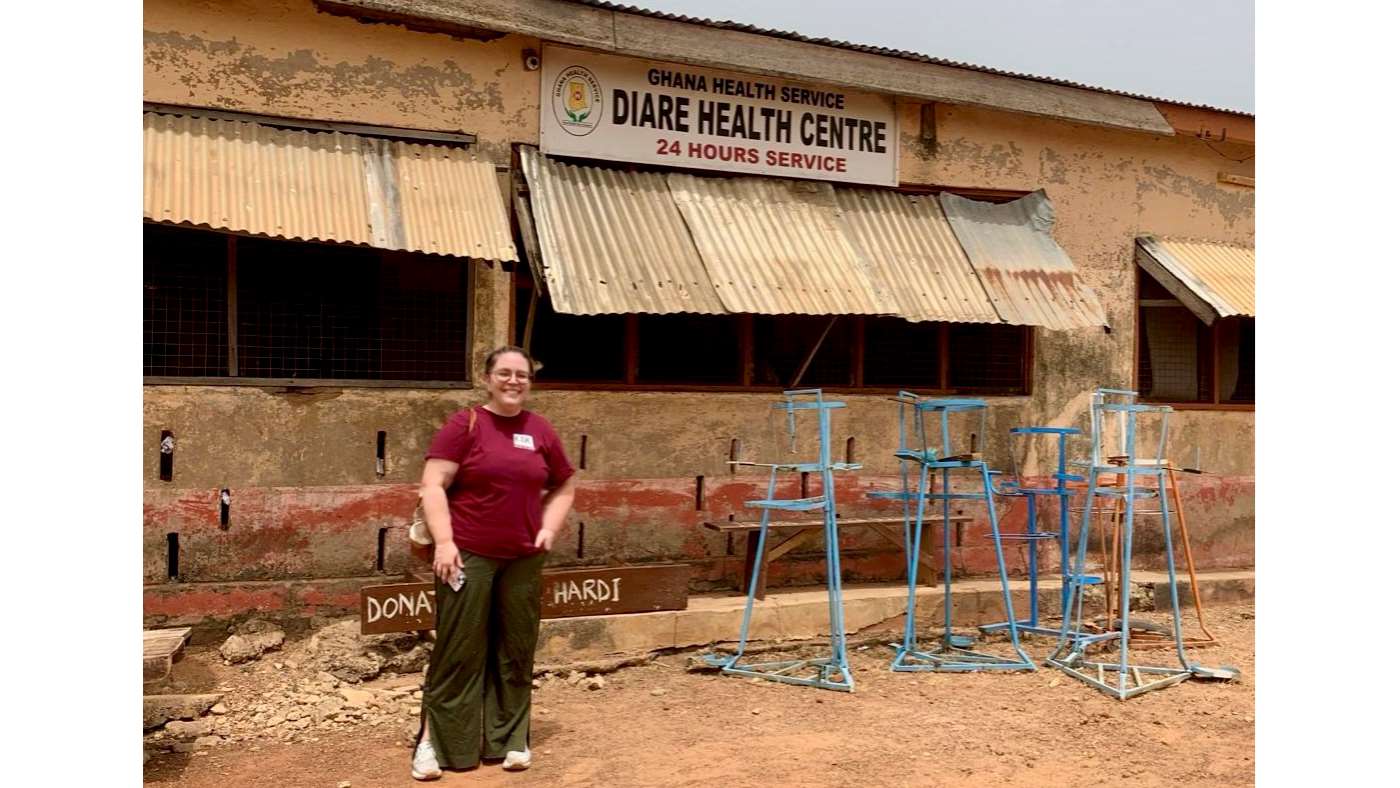Alumna’s Career Focus Motivated by Mother’s Illness

Dr. Wendt in northern Ghana studying treatments for river blindness.
Elizabeth M. Wendt, MD ’20, MPH, has focused her education and career around providing care to the underserved, many of whom are facing health challenges. Her interest started at a young age, at the time that her mother’s cancer returned.
Her mother, Madonna, was diagnosed with cancer at age 19; it returned 12 years later, when Dr. Wendt was a little girl. She remembers the impact of going with her mother to her doctors’ appointments.
“From this experience, I became interested in providing good care to people going through difficult times,” says Dr. Wendt. “Some of the lessons I learned then continue to impact my decisions and focus today – such as having a service mindset and helping the people whom the healthcare system had forgotten.”
 Dr. Wendt chose MCW-Central Wisconsin so that she could provide care to individuals from rural areas, who historically have been considered underserved - and also to conduct a service project, in which she helped launch PATCH (Providers and Teens Communicating for Health) in the Wausau, Wisconsin, area. (Pictured right: Dr. Wendt and her parents celebrating Match Day 2020.)
Dr. Wendt chose MCW-Central Wisconsin so that she could provide care to individuals from rural areas, who historically have been considered underserved - and also to conduct a service project, in which she helped launch PATCH (Providers and Teens Communicating for Health) in the Wausau, Wisconsin, area. (Pictured right: Dr. Wendt and her parents celebrating Match Day 2020.)
As part of PATCH Wausau (which has expanded to serve 15 north central Wisconsin counties), 10-12 local high school students are hired to lead educational workshops with peers and healthcare professionals, during which they learn to more effectively discuss topics such as sexual health, mental health and substance abuse.
“I am so passionate about the PATCH project, and to have it integrated into the community in three years was amazing. The commitment of MCW-Central Wisconsin to help this program provide value to the community was inspiring – and just one of the many things that makes MCW-Central Wisconsin a special place,” Dr. Wendt shares.
Dr. Wendt currently is caring for the underserved on a global level through an Epidemic Intelligence Service (EIS) Fellowship with the Centers for Disease Control and Prevention’s Global Health Center, in the division of parasitic diseases and malaria. EIS officers serve at the forefront of public health, protecting Americans and the global community while training under the guidance of seasoned mentors. When disease outbreaks or other public health threats emerge, EIS officers investigate, identify the cause, rapidly implement control measures and collect evidence to recommend preventive actions.
(Pictured below: Dr. Wendt at the Epidemic Intelligence Service Conference highlighting the global reach of the CDC’s Parasitic Diseases Branch.)
 Dr. Wendt’s two-year fellowship in applied epidemiology has enabled her to collaborate with teams in Senegal, Liberia and Ghana on projects to help people with onchocerciasis (river blindness). In September and October 2024, Dr. Wendt traveled to American Samoa to assist with a drug intervention for lymphatic filariasis, which causes elephantiasis/lymphedema. The disease carries a stigma and makes it hard for individuals to move their limbs.
Dr. Wendt’s two-year fellowship in applied epidemiology has enabled her to collaborate with teams in Senegal, Liberia and Ghana on projects to help people with onchocerciasis (river blindness). In September and October 2024, Dr. Wendt traveled to American Samoa to assist with a drug intervention for lymphatic filariasis, which causes elephantiasis/lymphedema. The disease carries a stigma and makes it hard for individuals to move their limbs.
“It was such an impactful experience,” says Dr. Wendt. “I was on the ground, helping teams and interacting with patients. I am hoping that this work leads to the disease being eradicated in a few years.”
Dr. Wendt currently lives in Atlanta and plans to return to the Midwest when her fellowship is completed in June 2025. The experience has been everything she thought it would be and has prepared her for the next stage in her career.
“The work is making me a better physician because I am learning how to communicate complicated topics so that patients can understand,” she says. “Also, the world is becoming more global, and thus we will work with more patients who suffer from these diseases and who come to the US for treatment. I look forward to educating healthcare providers about how to treat those who do so.”
– Anthony Braza



